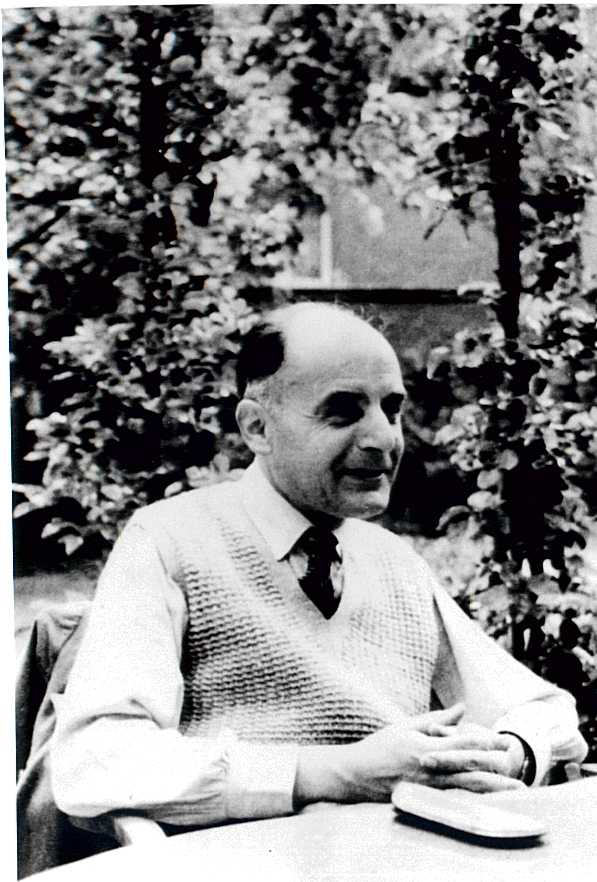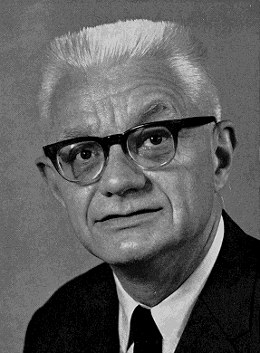<Back to Index>
- Philosopher Kurt Grelling, 1886
- Philosopher Carl Gustav "Peter" Hempel, 1905
PAGE SPONSOR

Kurt Grelling (March 2, 1886 – September, 1942) was a logician, philosopher and member of the Berlin Circle.
Shortly after his arrival in 1905 at University of Göttingen, Grelling began a collaboration with philosopher Leonard Nelson, with whom he tried to solve Russell's paradox, which had shaken the foundations of mathematics when it was announced in 1903. Their 1908 paper included new paradoxes, including a semantic paradox that was named the Grelling – Nelson paradox.
He received his doctorate in mathematics from the same university in 1910 with a dissertation on the development of arithmetics in axiomatic set theory, advised by David Hilbert. In a recorded interview with Herbert Enderton, Alfred Tarski mentions a meeting he had with Grelling in 1938, and says that Grelling was the author of the earliest textbook in set theory, probably but wrongly referring to this dissertation, since William Henry Young and Grace Chisholm Young's Set Theory was published in 1906.
As a skilled linguist, Grelling translated philosophical works from French, Italian and English to German, including four of Bertrand Russell's works. He became a strong proponent of Russell's writings thereafter.
From 1911 to 1922 Grelling published exclusively journalistic articles in publications connected with the Social Democratic Party of Germany, but from 1924 onward his publications were exclusively in the field of positivist philosophy.
Unable to find a university position in Göttingen or Berlin, Grelling had to teach mathematics, philosophy and physics in secondary schools. Nevertheless, he worked with Hans Reichenbach in planning the meetings of the Berlin Circle, which was closely associated with the Vienna Circle. In 1933, Reichenbach emigrated to Turkey and the Nazis forced Grelling to retire. But he struggled to keep the Berlin Circle active by organizing small seminars and colloquia.
Grelling collaborated with Kurt Gödel and in 1936 he published an article in which he defended Gödel's incompleteness theorem against an erroneous interpretation, according to which Gödel's theorem is a paradox as Russell's paradox.
Although many of his relatives and friends had fled Germany, he did not think seriously about leaving until 1937, in which year he went to Brussels to work with Paul Oppenheim, this time writing several papers on the analysis of scientific explanation and on Gestalt psychology.
On May 10, 1940, the first day of the German invasion in Belgium, Grelling was arrested. He was deported to southern France, where he was interned for over two years under the Vichy regime. Oppenheim and Hempel tried to help Grelling by securing an appointment for him at the New School for Social Research in New York City. News of the position and a visa to the USA reached the camp where Grelling had been joined by his wife Greta, who had refused to divorce him for safety reasons. But U.S. immigration officials were perplexed by Grelling's alleged propensity towards Communism, so there was a delay that was fatal to Grelling. He and his wife are supposed to have been shipped to Auschwitz, arriving there on September 18, 1942 and perishing in the gas chambers that day or soon thereafter, although it has been also reported that Grelling was killed in 1941 at the border between France and Spain.

Carl Gustav "Peter" Hempel (January 8, 1905 – November 9, 1997) was a philosopher of science and a major figure in 20th century logical empiricism. He is especially well known for his articulation of the Deductive - nomological model of scientific explanation, which was considered the "standard model" of scientific explanation during the 1950s and 1960s. He is also known for the Raven paradox, which highlights the problem of induction.
Hempel studied mathematics, physics and philosophy at the University of Göttingen, Heidelberg and Berlin. In Göttingen he encountered David Hilbert and was impressed by his attempt to base all of mathematics on solid logical foundations derived from a limited number of axioms (Hilbert's Program). Having moved to Berlin he participated in a congress on scientific philosophy in 1929, where he met Rudolf Carnap and became involved in the Berlin Circle of philosophers that was associated with the Vienna Circle. In 1934 he received his doctoral degree from the University of Berlin with a dissertation on probability theory.
The same year he fled the increasingly repressive and anti - semitic Germany (especially considering his wife was partially Jewish) and emigrated to Belgium with the help of Paul Oppenheim, with whom he co-authored the book "Der Typusbegriff im Lichte der neuen Logik" on typology and logics in 1936. In 1937 Hempel emigrated to the US where he accepted a position as Carnap's assistant at the University of Chicago. Subsequently he held positions at New York's City College of New York (1939 – 1948), Yale University (1948 – 1955), and Princeton University where he taught alongside Thomas Kuhn, and stayed until he was given emeritus status in 1973. As an emeritus he spent the years from 1974 - 1976 at the Hebrew University in Jerusalem. He became University Professor of Philosophy at the University of Pittsburgh in 1977 and taught there until 1985.
He never embraced the term "logical positivism" as an accurate description of the Vienna Circle and Berlin Group in which he had participated during the years between the World Wars, preferring to describe those philosophers, and himself, as "logical empiricists."
Hempel believed that the term "positivism", with its roots in Auguste Comte, invoked a materialist metaphysic that empiricists need not embrace. He regarded Wittgenstein as a philosopher with a genius for stating philosophical insights in striking and memorable language, but believed that Wittgenstein (or at least, the Wittgenstein of the Tractatus) made claims which could only be supported by recourse to metaphysics. To Hempel, metaphysics were anathema, involving claims to know things which were not knowable, that is, advancing hypotheses incapable of tending to be confirmed or disconfirmed by evidence.
In 2005 the City of Oranienburg renamed a street to "Carl - Gustav - Hempel - Straße".